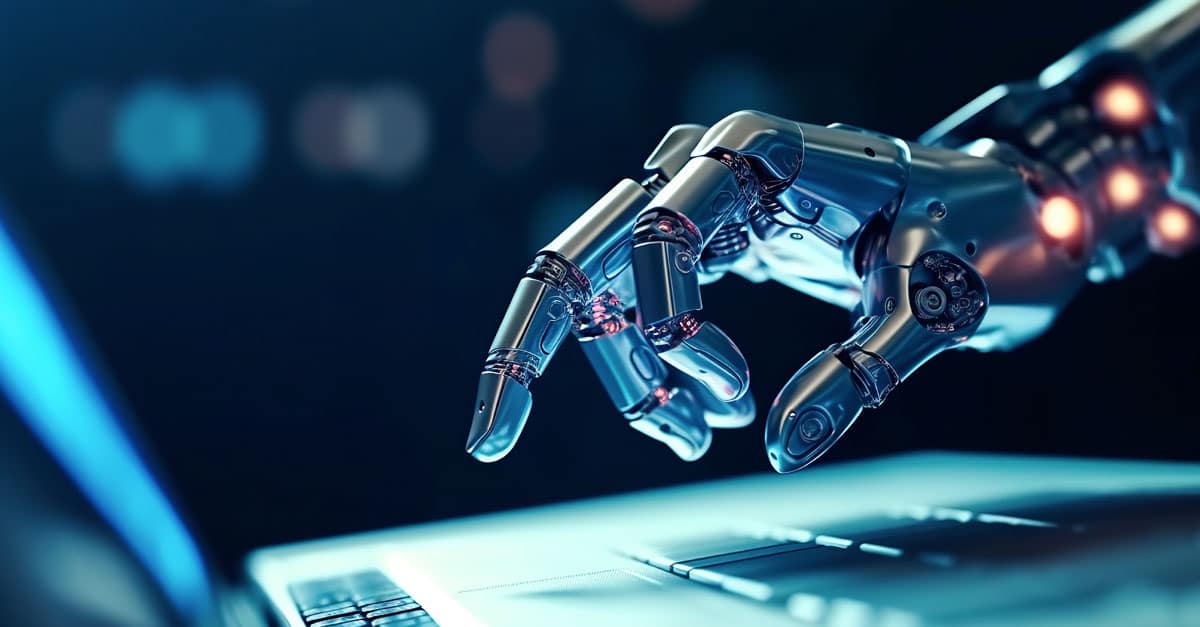According to the report by investment bank Goldman Sachs, AI could replace the equivalent of 300 million full-time jobs. Most customer service requests are fairly mundane or repetitive, such as tracking an order, checking a balance, or resetting a password. Modern customers increasingly want fast, convenient service. Leveraging AI may provide faster, more efficient service while also removing much of the repetitiveness for agents.
Enrichment instead of Replacement
Still, most experts agree that customer service jobs will be augmented and automated, but not replaced. Authors in Harvard Business Review (HBR) say that generative AI will not wipe out entire categories of jobs, such as those in customer service. Automation is ideally about unlocking human potential to do tasks differently and do different, higher-value tasks.
Instead of being dominated by intelligent machines, enrichment is assumed. “For example, we found that the bulk of work for customer service representatives could be broken down into 13 existing tasks. We then analyzed how the introduction of generative AI might affect each of those tasks. Four of the tasks remained unchanged and could be performed entirely by humans.
Four tasks could be fully automated. Five tasks could be augmented to help humans work more effectively. And five new, high-value tasks emerge. Human, automated, augmented, and emergent tasks—these are the ingredients of a new mix of tasks around which companies should redesign jobs to get the maximum advantage from generative AI,” noticed the experts in HBR.
Elevate Your Wealth Game: Empowering UHNWIs for Simplified Asset Management. Altoo Platform Preview
The ChatGPT might be an example. The interface and its predecessors were trained with a technique called reinforcement learning from human feedback (RLHF). Its developers are continuing to refine it based on how people are using it online. As one of ChatGPT’s developers told Technology Review, the basic idea is to take a large language model with a tendency to spit out anything it wants (…) and tune it by teaching it what kinds of responses human users actually prefer.”
Necessary Humans
With many repetitive tasks removed, customer service agents can focus on more creative and fulfilling jobs, such as providing personalized service, working through complicated issues, and building relationships. Customer service guidance is based on human experience, perception, and expertise. Customers will always need humans; AI cannot replace human interaction. Even though customers want speed and efficiency, they also want someone who understands them and shows empathy.
Developing consistent, convenient, and personalized experiences at scale has never been more important. According to Forbes, 47% of Gen Z will walk away from a brand after a single bad customer service experience.
Every interaction matters. AI helps brands provide reliable experiences for every type of interaction. In the domain of customer service, the advent of generative AI, guided by humans, will require such higher-order cognitive work as judgment, insight, moral reasoning, and innovation.
How AI will concrete affect human’s work
A lot of other important things come into play in the ongoing debate about how AI will affect work in customer service that people do.
Cost-effectiveness and scalability: One reason why AI is being used in customer service is that it has the potential to cut operating costs by a lot. AI-powered systems can handle a lot of questions at once, which helps businesses save money, especially in industries with a lot of customer interactions.
AI is available 24 hours a day, 7 days a week, 365 days a year. This is different from human agents, who have limited working hours and access. This is especially helpful for companies with customers in different time zones all over the world.
Info-driven Insights: Artificial intelligence can quickly look at a lot of customer info. This method, which is based on data, can help companies learn a lot about how customers act, what they like, and where they have problems. These insights can be used to help make strategic choices and give customers a more personalized experience.
Language and Multilingual Support: Chatbots and virtual assistants that are driven by AI can interact in more than one language. This makes it possible to help customers all over the world without having to hire multilingual staff. This is important for businesses with a wide range of customers.
Continuous Improvement: AI systems like ChatGPT can keep learning and getting better based on how users interact with them and give them feedback. This means that as these systems are used more, they get better at answering customer questions and giving good answers.
Ethics: As AI is used more and more in customer service, ethical questions arise. Making sure that AI systems give fair and unbiased answers and protect user privacy is becoming a bigger problem that companies and regulators need to solve.
The use of artificial intelligence (AI) in customer service means that human workers need to learn new skills. They need to learn how to use AI tools, understand the meaning of data insights, and handle complicated, emotionally charged situations that AI can’t handle well.
Customer Acceptance: Different groups of people accept AI in customer service in different ways. Some customers might like to talk to a person, while others might be fine with AI-driven help. Finding the right balance to meet the needs of a wide range of customers is a constant struggle.
In the end, AI definitely changes customer service by automating routine chores and making it more efficient. However, it also brings a complex set of challenges and opportunities. The future of customer service is likely to be shaped by how AI and humans work together.
Businesses will try to find a mix that uses the best parts of both to give customers a great experience. As AI technology keeps getting better, its effects on the workplace and customer service will continue to be closely watched and studied.









